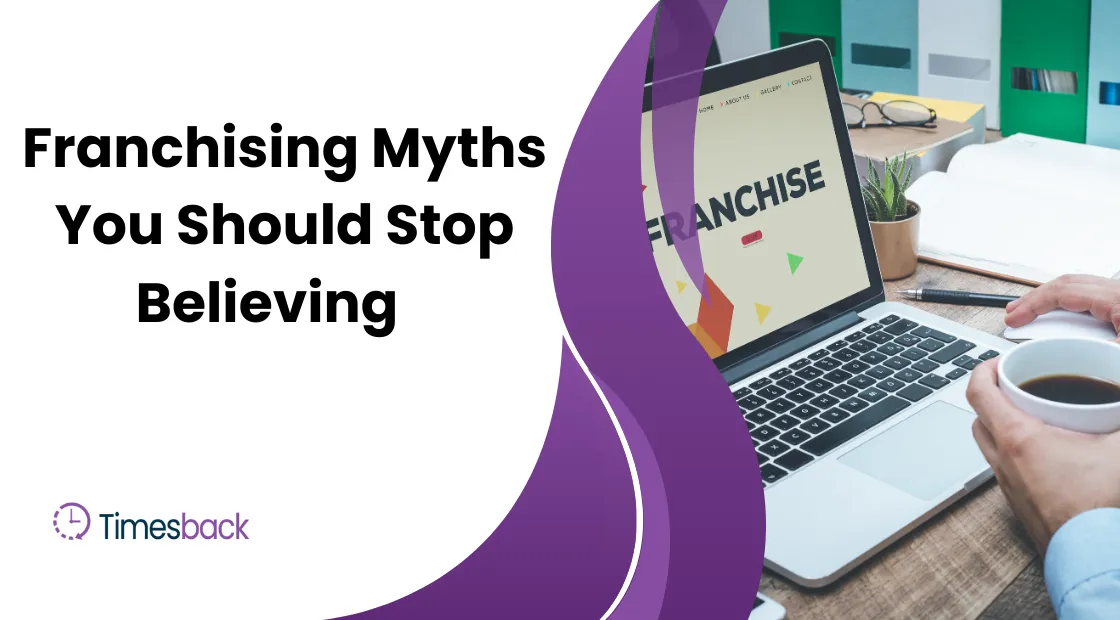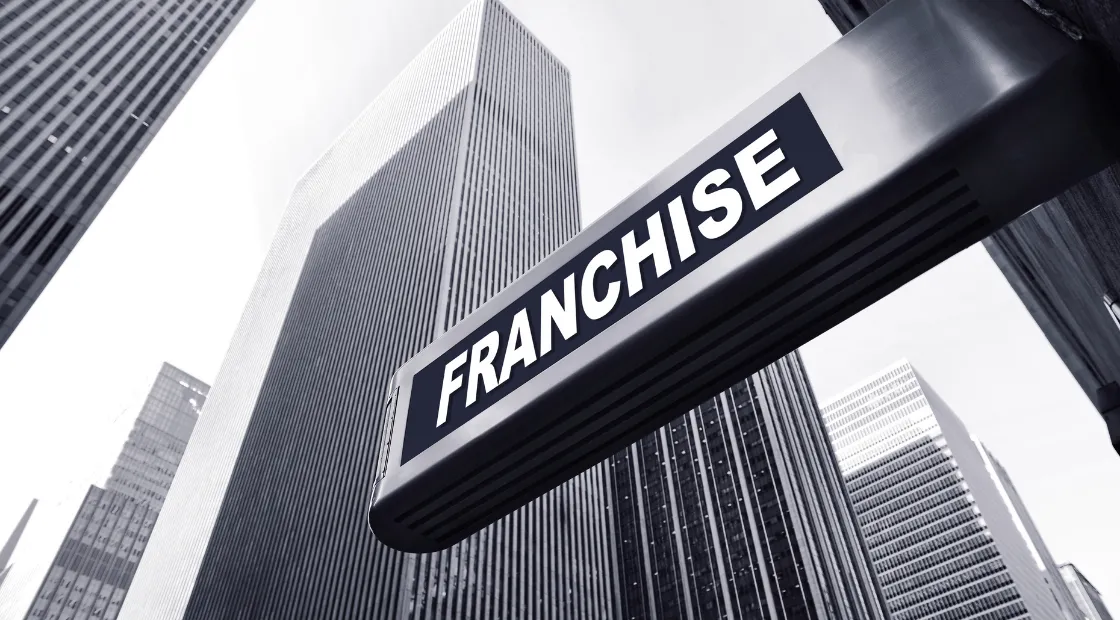Mitos sobre franquicias que debes dejar de creer

Franchising myths often cloud the decision-making process for aspiring entrepreneurs, creating hesitation where opportunity awaits.
Anuncios
The franchise industry, a vibrant engine of economic growth, is frequently misunderstood due to outdated assumptions or half-truths.
These misconceptions can deter potential franchisees from seizing a proven business model that offers structure, support, and scalability.
In 2024, the U.S. franchise sector contributed over $858 billion to the economy, employing 8.7 million people, according to the International Franchise Association (IFA).
Anuncios
Yet, despite its impact, myths persist, muddying the waters for those considering this path.
This article dismantles eight pervasive franchising myths, offering clarity with fresh perspectives, actionable insights, and a touch of wit to guide you toward informed decisions.
Ready to separate fact from fiction? Let’s dive in.
As the franchise landscape evolves, it’s crucial to stay informed about these myths to make educated decisions.
Understanding the truth behind franchising can empower aspiring entrepreneurs to explore opportunities that may have previously seemed out of reach.
Myth 1: Franchising Is Only for the Wealthy
The notion that franchising is an exclusive club for deep-pocketed investors is a stubborn stereotype.
While some franchises, like luxury hotels, demand hefty upfront capital, many opportunities are accessible to middle-class entrepreneurs.
Consider fast-casual dining or service-based franchises like mobile pet grooming, which often require initial investments as low as $50,000.
Por ejemplo, Paws on the Go, a fictional mobile grooming franchise, has an entry cost of $45,000, including equipment and training, making it approachable for first-time business owners.
Financing options, such as SBA loans or franchisor-backed payment plans, further lower the barrier.
A common counterargument is that hidden costs inflate the investment beyond affordability.
True, ongoing royalties and marketing fees exist, but these are often proportional to revenue, ensuring franchisees only pay what their business can sustain.
The key is due diligence—reviewing the Franchise Disclosure Document (FDD) to understand all costs upfront.
Why let a myth about wealth gatekeep your entrepreneurial dreams when financing tools and diverse franchise models abound?
Table 1: Franchise Investment Ranges
| Franchise Type | Initial Investment Range | Example Franchise (Fictional) |
|---|---|---|
| Fast Food | $100,000 - $1.5M | Burger Blitz |
| Service-Based | $30,000 - $150,000 | Paws on the Go |
| Minorista | $200,000 - $2M | Gadget Galaxy |
| Fitness Centers | $150,000 - $500,000 | FitPulse Studios |
Additionally, resources like the IFA's website provide valuable insights into various franchise opportunities, helping potential franchisees find options that fit their financial situation.
You can explore more about franchise financing options at Franquicia directa.
Myth 2: Franchises Are a “Get Rich Quick” Scheme
Some envision franchising as a golden ticket to instant wealth, but this fantasy ignores the grind behind success.
Franchises offer a blueprint, not a shortcut.
Building a thriving franchise requires time, effort, and strategic execution.
Take Brewed Awakening, a fictional coffee shop franchise.
Its owners typically see profitability after 18-24 months, provided they master local marketing and operational efficiency.
The IFA reports that 60% of franchisees achieve profitability within two years, a stark contrast to the 80% failure rate of independent startups in the same period.
The allure of quick riches often stems from cherry-picked success stories, but these overlook the daily realities of managing staff, inventory, and customer satisfaction.
Franchising is like planting an orchard—you nurture the trees, prune diligently, and harvest rewards over time.
Expecting overnight millions is a recipe for disillusionment.
Instead, focus on steady growth and leveraging the franchisor’s proven systems.
Moreover, understanding the commitment required for success will help aspiring franchisees set realistic expectations.
This mindset shift is crucial for long-term success.
Myth 3: You Lose All Control as a Franchisee
A persistent franchising myth paints franchisees as puppets, stripped of autonomy by overbearing franchisors.
While franchises operate under a standardized system, this structure empowers rather than restricts.
Franchisees make critical decisions—hiring staff, setting local promotions, or tailoring customer experiences—within the brand’s guidelines.
For instance, a franchisee of Burger Blitz might launch a community burger-naming contest to boost engagement, a move that aligns with brand standards yet reflects local flair.
Critics argue that franchise agreements stifle creativity, but this overlooks the balance between consistency and flexibility.
The franchisor’s framework ensures brand recognition, while franchisees inject personality into their locations.
Imagine a chef forced to cook with only one spice—boring!
Franchising, however, hands you a full spice rack, letting you season the dish while following the recipe.
Additionally, many franchisors actively encourage franchisees to innovate within their local markets, fostering a sense of ownership and creativity.
This collaborative approach enhances both brand loyalty and customer satisfaction.
+ Estrategias de salida de franquicia: ¿Cuáles son sus opciones?
Myth 4: Franchises Are Risk-Free
The idea that franchising guarantees success is dangerously misleading.
No business is immune to risk, and franchises are no exception.
Economic downturns, local competition, or poor management can derail even the strongest brands.
However, franchises mitigate risk through established systems, training, and brand recognition.
The IFA notes that franchises have a 90% survival rate after five years, compared to 20% for independent businesses.
Still, success hinges on the franchisee’s execution.
A poorly managed franchise can falter, just as a well-run one can thrive.
Researching market demand and choosing a franchise with a robust support system—like ongoing training or marketing assistance—reduces risk but doesn’t eliminate it.
Believing otherwise is like assuming a lifeboat is unsinkable; preparation and vigilance are key.
Moreover, understanding the risks involved allows potential franchisees to develop effective strategies for mitigating those risks.
This proactive approach is essential for navigating the challenges of business ownership.

Myth 5: All Franchises Are the Same
Not all franchises are cut from the same cloth, yet this franchising myth persists.
From fitness studios to home cleaning services, franchises span industries, investment levels, and operational models.
Some, like fast-food chains, demand hands-on management, while others, like property management franchises, allow semi-absentee ownership.
The diversity is staggering—over 3,000 franchise brands operate in the U.S., per the IFA.
Skeptics might claim that franchises lack variety due to standardized branding, but this ignores the nuances.
A fitness franchise might emphasize community classes, while a tutoring franchise focuses on personalized education.
Selecting a franchise that aligns with your skills and passions is critical.
Why settle for a one-size-fits-all model when the franchise world offers a buffet of opportunities?
Table 2: Franchise Industry Diversity
| Industria | Growth Rate (2024) | Key Appeal |
|---|---|---|
| Fast Food | 4.2% | High brand recognition |
| Health & Fitness | 6.8% | Growing wellness trend |
| Home Services | 5.1% | Low overhead, flexible hours |
| Education/Tutoring | 3.9% | Social impact, stable demand |
Additionally, exploring different franchise sectors can reveal unique opportunities that resonate with your personal interests and skills.
This exploration will help you find the perfect fit for your entrepreneurial journey.
Myth 6: Franchising Is Only for Experienced Entrepreneurs
Many assume franchising demands a business degree or decades of corporate experience, but this myth excludes countless capable candidates.
Franchisors prioritize passion, work ethic, and a willingness to follow their system over prior expertise.
Comprehensive training programs equip franchisees with the tools to succeed, regardless of background.
Por ejemplo, FitPulse Studios offers a 30-day bootcamp covering operations, marketing, and customer service, enabling novices to thrive.
Detractors might argue that inexperience leads to failure, but franchisors counter this with robust support.
Ongoing mentorship, regional managers, and peer networks provide a safety net.
Franchising is like learning to swim with a coach—you don’t need to be an Olympian, just willing to dive in and practice.
Moreover, many successful franchisees come from diverse backgrounds, demonstrating that determination and a willingness to learn are often more important than previous experience.
This inclusivity fosters a rich community of franchise owners.
Myth 7: Franchises Can’t Adapt to Local Markets
Another franchising myth suggests that franchises are rigid, unable to cater to local tastes or trends.
In reality, successful franchisors encourage localized strategies within brand parameters.
A Gadget Galaxy franchise in Miami might stock more beach-friendly tech accessories, while one in Seattle emphasizes eco-friendly products.
This flexibility ensures relevance without diluting brand identity.
Opponents of this view might point to strict operational guidelines, but these exist to maintain quality, not stifle innovation.
Franchisees who research their market and collaborate with franchisors can tailor offerings effectively.
Dismissing this adaptability is like assuming a chameleon can’t change colors—it’s in the franchise model’s DNA.
Additionally, leveraging local insights allows franchisees to create unique marketing strategies that resonate with their communities, enhancing customer loyalty.
This local engagement can significantly boost sales and brand recognition.
++ Cómo gestionar un negocio de franquicia con éxito
Myth 8: Franchising Is a Dying Model
In an era of e-commerce and startups, some claim franchising is outdated.
This couldn’t be further from the truth.
The franchise model evolves with consumer trends, integrating technology like AI-driven marketing or mobile apps for customer loyalty.
The IFA projects 2.2% growth in franchise establishments in 2025, driven by sectors like health and wellness.
Franchising thrives because it balances innovation with reliability.
Naysayers might highlight the rise of independent ventures, but franchises offer unmatched scalability and support.
Why bet on an untested idea when you can join a system refined over decades?
Franchising isn’t fading—it’s adapting, proving its resilience in a dynamic economy.
Moreover, the continued growth of franchise establishments highlights the model's ability to innovate and meet changing consumer demands.
This adaptability ensures that franchising remains a viable and lucrative option for aspiring entrepreneurs.

Why These Myths Matter
Believing franchising myths can derail your entrepreneurial journey, leading to missed opportunities or misguided expectations.
Each myth distorts the reality of a model that has empowered millions to build wealth and independence.
By debunking these misconceptions, you gain clarity to evaluate franchising on its merits.
The data speaks for itself: franchises drive economic growth, create jobs, and offer a structured path to business ownership.
The question isn’t whether franchising is viable—it’s whether you’re ready to challenge assumptions and seize its potential.
What’s stopping you from exploring a franchise that aligns with your vision?
With diverse options, robust support, and a track record of resilience, franchising remains a powerful vehicle for success in 2025 and beyond.
Additionally, engaging with franchise communities and forums can provide valuable insights and support as you navigate your franchising journey.
Connecting with experienced franchisees can offer guidance and encouragement to help you succeed.
